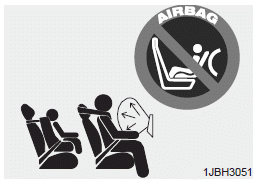Hyundai Palisade: Fuel Delivery System / Release residual pressure in fuel line
Hyundai Palisade (LX2) 2020-2025 Service Manual / Engine Control/Fuel System / Fuel Delivery System / Release residual pressure in fuel line
| Release Residual Pressure in Fuel Line |
|
|
| 1. |
Turn the ignition off and disconnect the battery negative cable.
|
| 2. |
Remove the fuel pump fuse (A).
|
| 3. |
Reconnect the battery negative terminal.
|
| 4. |
Run the engine for about 1 minutes to lower the pressure in the low
pressure line.
|
| 5. |
Turn the engine off.
|
| 6. |
Disconnect the low pressure fuel line quick connector at the High Pressure
Pump. Use rags to cover opening and catch spills while removing the
fuel line.
|
| 7. |
Start the engine and let it idle until the engine stops. At this point
the pressure should be under 30 psi.
|
| 8. |
Proceed with the service or repair. Use rags to cover opening and catch
spills when opening up the high pressure system.
|
| 9. |
Reinstall / re-connect all components in reverse order of removal. Start
engine and confirm proper operation, and make sure there are no fuel
leaks.
|
| 10. |
After completing, clear DTC(s) using diagnostic tool scan tool
(the procedure described above will cause DTC to set).
|
 Fuel pressure test (low pressure system)
Fuel pressure test (low pressure system)
Fuel Pressure Test (Low
pressure system)
1.
Release the residual pressure in fuel line.
(Refer to Fuel Delivery System - "Release Residual Pressure in Fuel
Line")
•
When removing the fuel pump fuse, a Diagnostic Trouble
Code (DTC) may occur...
 Fuel Tank
Fuel Tank
Repair procedures
•
Be careful not to damage the parts located under the vehicle
(floor under cover, fuel filter, fuel tank and canister) when
raising the vehicle using the lift...
Other information:
Hyundai Palisade (LX2) 2020-2025 Service Manual: Exhaust Manifold
Components and components location Components 1. LH Exhaust manifold gasket 2. LH Exhaust manifold 3. LH Heat protector 4. LH Exhaust manifold stay 5. RH Exhaust manifold gasket 6. RH Exhaust manifold 7...
Hyundai Palisade (LX2) 2020-2025 Service Manual: Special service tools
..
Categories
- Manuals Home
- 1st Generation Palisade Owners Manual
- 1st Generation Palisade Service Manual
- Electronic Child Safety Lock System
- Electrochromatic Mirror (ECM) with homelink system
- AC Inverter
- New on site
- Most important about car
Do Not Install a Child Restraint in the Front Passenger's Seat

Even though your vehicle is equipped with the OCS, never install a child restraint in the front passenger's seat. An inflating air bag can forcefully strike a child or child restraint resulting in serious or fatal injury.
Copyright © 2025 www.hpalisadelx.com



